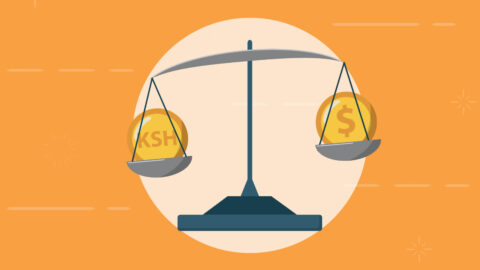Decoding Uhuru’s tax cuts for employees
What does the Uhuru’s tax cut for employees mean for salaries from April 2020?

The outbreak of the novel coronavirus, which has since been declared a global pandemic by the World Health Organisation, has upended business and social life across the world.
In Kenya, one of the first measures announced by President Uhuru Kenyatta is in the form of tax cuts aimed at easing the burden on both individuals and employers.
The measures have already been submitted to Parliament in the form of a Bill to amend various tax laws.
Specifically, the proposals are: income tax relief on personal income tax; reduction of Resident Corporate Income Tax rate from 30 per cent to 25 per cent; reduction of Turnover Tax rate for SMEs from 3 per cent to 1 per cent; immediate reduction of VAT rate from 16 per cent to 14 per cent; and facilitating expedited payment of VAT Refunds by allocating an additional Sh10 Billion.
But how this is impact you?
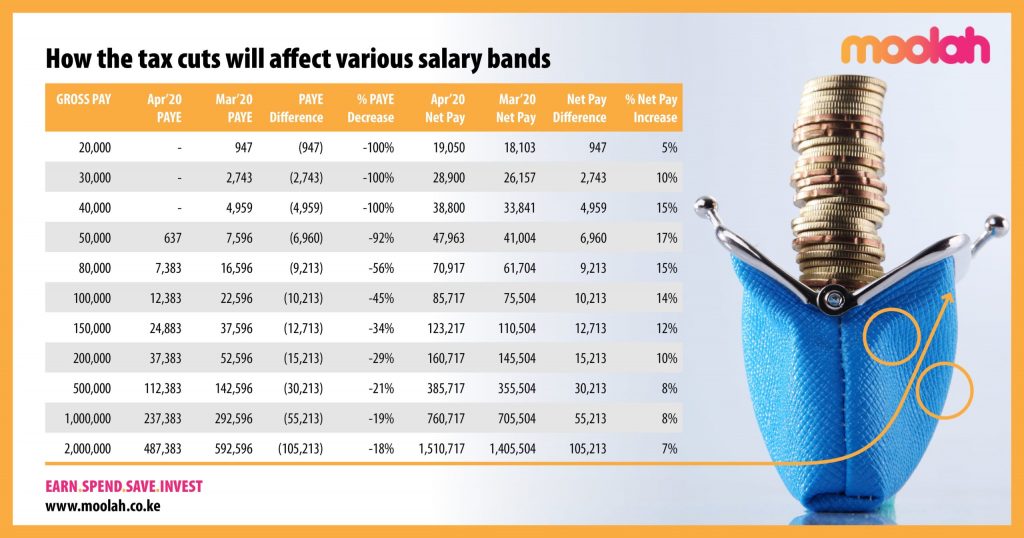
Kenyans earning less than KSh24,000 a month were given a 100 per cent tax waiver, which basically means that they will not pay taxes.
The relief is expected to cushion millions of Kenyans from the harsh economic consequences of the measures introduced to contain the spread of Coronavirus.
“It was a good call from the government. Households need more disposable income and the majority of working Kenyan households are in the salary bracket of KSh24,000 and below,” said Tony Watima, an economist.
According to the Economic Survey published by the Kenya National Bureau of Statistics, the median income in Kenya is around KSh15,000. The average wage in Kenya is around KSh60,000, with people in the banking and insurance earning the highest, with an average of KSh143,000, while people working as household employees, water supply, sanitation services and waste management earn KSh20,000 a month.
Interestingly, it is worth noting that the number of salaried workers earning less than KSh30,000 accounts for 46.3 per cent of the total 2,765,159 salaried workers, while those earning more than KSh100,000 accounts for 2.89 percent as captured in the Kenya Revenue Authority (KRA) database as of the end of December 2018.
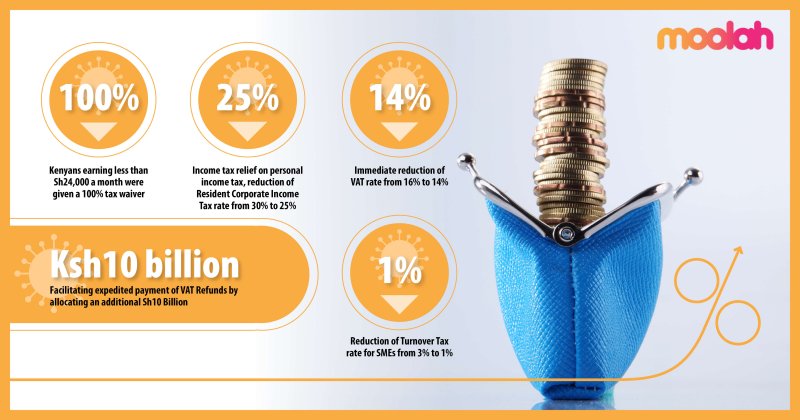
PKF Kenya Partner Patrick Kuria opines that the proposed tax relief will see an immediate flow of cash to the economy.
However, more can be done to cushion the informal MSMEs sector especially those in major urban centers such as Nairobi, Mombasa, Kisumu and Nakuru.
“Too many Kenyan households live from hand to mouth and live on the financial edge. This is the category that is greatly impacted by the COVID-19 containment directives, better measures including waiver of water and electricity costs and delivery of food to these households should be introduced,” Mr. Kuria said.
Table 1. Tax Bands in Kenya
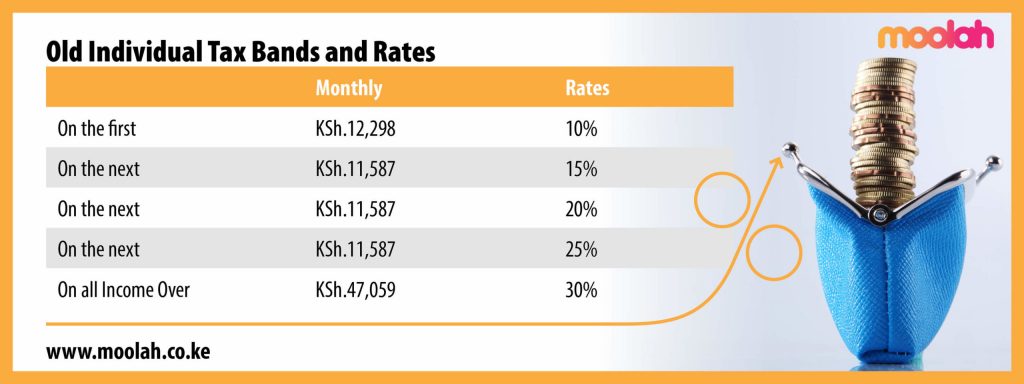
Someone who was earning KSh40,000 in March will see their salaries increase from KSh33,841 to KSh39,620 in April.
The net pay for those who earned Sh50,0000 will increase from KSh41,004 to KSh47,963 from April.
Table 2. Proposed Rates
The Tax Laws (Amendment) Bill, 2020 proposes to change the PAYE rates to:
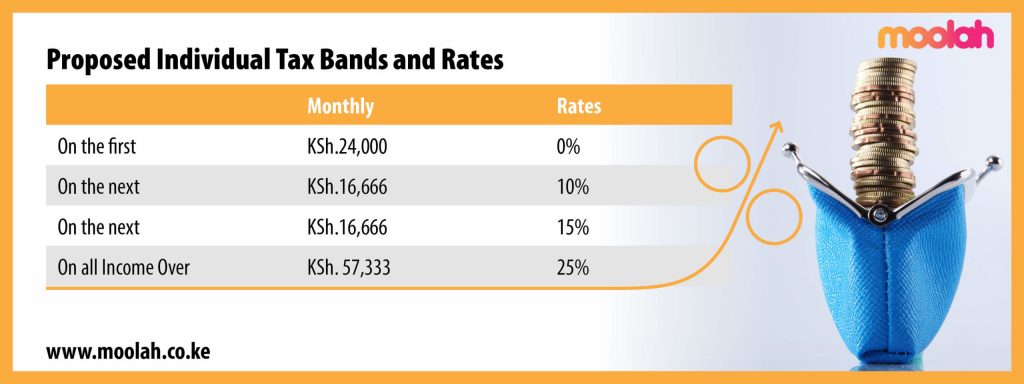
Those who earn Sh100,000 will see their net salary increase from KSh75,504 in March to KSh85, 717.
For workers earning below Sh100,000, the tax cuts will translate to a net pay increase of between 15 to 18 per cent.




